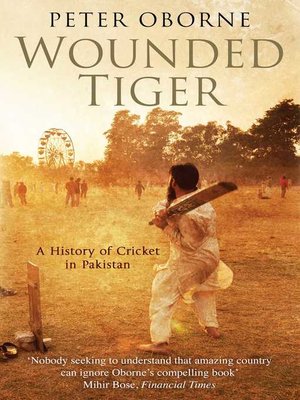A Secular Religion
ebook ∣ The History of Cricket in Pakistan from the British Empire to the Taliban
By Peter Oborne

Sign up to save your library
With an OverDrive account, you can save your favorite libraries for at-a-glance information about availability. Find out more about OverDrive accounts.
Find this title in Libby, the library reading app by OverDrive.



Search for a digital library with this title
Title found at these libraries:
| Library Name | Distance |
|---|---|
| Loading... |
THE WISDEN BOOK OF THE YEAR and THE CROSS SPORTS BOOK AWARDS CRICKET BOOK OF THE YEAR.
'The most complete, best researched, roses-and-thorns history of cricket in Pakistan' Independent
'As good as it's likely to get' Guardian
The nation of Pakistan was born out of the trauma of Partition from India in 1947. Its cricket team evolved in the chaotic aftermath. Initially unrecognised, underfunded and weak, Pakistan's team grew to become a major force in world cricket. Since the early days of the Raj, cricket has been entwined with national identity and Pakistan's successes helped to define its status in the world. Defiant in defence, irresistible in attack, players such as A.H.Kardar, Fazal Mahmood, Wasim Akram and Imran Khan awed their contemporaries and inspired their successors.
The story of Pakistan cricket is filled with triumph and tragedy. In recent years, it has been threatened by the same problems affecting Pakistan itself: fallout from the 'war on terror', sectarian violence, corruption, crises in health and education, and a shortage of effective leaders. For twenty years, Pakistan cricket has been stained by the scandalous behaviour of the players involved in match-fixing. After 2009, the fear of violence drove Pakistan's international cricket into exile.
But Peter Oborne's narrative is also full of hope. For all its troubles, cricket gives all Pakistanis a chance to excel and express themselves, a sense of identity and a cause for pride in their country. Packed with first-hand recollections, and digging deep into political, social and cultural history, Wounded Tiger is a major study of sport and nationhood.
'The most complete, best researched, roses-and-thorns history of cricket in Pakistan' Independent
'As good as it's likely to get' Guardian
The nation of Pakistan was born out of the trauma of Partition from India in 1947. Its cricket team evolved in the chaotic aftermath. Initially unrecognised, underfunded and weak, Pakistan's team grew to become a major force in world cricket. Since the early days of the Raj, cricket has been entwined with national identity and Pakistan's successes helped to define its status in the world. Defiant in defence, irresistible in attack, players such as A.H.Kardar, Fazal Mahmood, Wasim Akram and Imran Khan awed their contemporaries and inspired their successors.
The story of Pakistan cricket is filled with triumph and tragedy. In recent years, it has been threatened by the same problems affecting Pakistan itself: fallout from the 'war on terror', sectarian violence, corruption, crises in health and education, and a shortage of effective leaders. For twenty years, Pakistan cricket has been stained by the scandalous behaviour of the players involved in match-fixing. After 2009, the fear of violence drove Pakistan's international cricket into exile.
But Peter Oborne's narrative is also full of hope. For all its troubles, cricket gives all Pakistanis a chance to excel and express themselves, a sense of identity and a cause for pride in their country. Packed with first-hand recollections, and digging deep into political, social and cultural history, Wounded Tiger is a major study of sport and nationhood.







